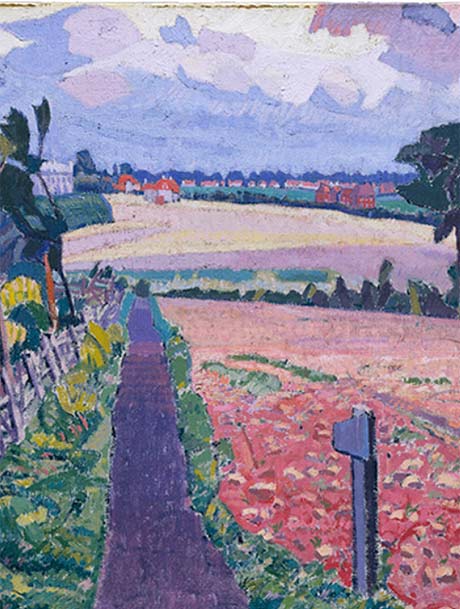Childhood Abuse and Adverse Circumstances Lead to Adult Ill-health
As a psychologist I am often asked whether being abused in childhood, or raised in adverse circumstances have consequences later in life. Some adults put it like this: “Things happened to me when I was a kid. Why can’t I just get over it? It was a long time ago.” Others are certain they are still affected by childhood traumas and difficulties.
Psychologists and other mental health professionals have studied whether it is indeed the case that abuse and adversity in childhood can have lasting effects.
First, I have listed adult problems that the researchers have determined were more likely to affect those raised in abusive and adverse circumstances, compared to those who were not raised in such circumstances. Then, if you want to know more about how the research was conducted, there is information further on down the page.
- Depression and anxiety
- Low self esteem
- Relationship difficulties
- Cancer
- Heart disease
- Lung disease
- Liver disease
- Obesity
- Diabetes
- Asthma
- Alcoholism
- Illicit drug use
- Smoking cigarettes
- Learning, attention and memory difficutlies
- Post Traumatic Stress Disorder
- Hyperactivity and sleep disorders
- Borderline Personality Disorder
- High blood pressure
- High cholesterol
- Premature death (age 75 or younger)
 Spencer Gore - The Cinder Path. © Tate 2012
Spencer Gore - The Cinder Path. © Tate 2012 Researchers asked the people who participated in their studies to answer questions about their symptoms, and different types of abuse and adverse circumstances. The researchers used the term “Adverse Childhood Events” (ACE). In one major study, the participants were over 9,000 adults who had completed a standard medical evaluation at a Health Maintenance Organization (HMO) in California.
In order to understand the results of the studies it is important to understand exactly what the researchers and participants defined as “Adverse Childhood Events” (ACE).
This is their list:
- Psychological Abuse
- Physical Abuse
- Sexual Abuse
- Substance abuse in the household
- Mental Illness in the household
- Mother treated violently
- Criminal Behaviour in the household
The people who took part in the studies were asked specific questions, like these:
“Did an adult or person at least 5 years older ever touch or fondle you in a sexual way?”
“Was a household member depressed or mentally ill?”
“Did a household member go to prison?”
Results
Overall, the ”finding suggests that the impact of these adverse childlhood experiences on adult health status is strong and cumulative.” (Felliti, 1998.) The more adverse events or circumstances, the greater the ensuing difficulties.
Below are listed quotations from the results and conclusions sections of several studies. The full references for the authors are listed at the end, under “References”.
Emotional and Psychological Consequences
“... 80 percent of young adults who had been abused met the diagnostic criteria for at least one psychiatric disorder at age 21.” (Centers for Disease Control and Prevention.)
“... the stress of chronic abuse may cause a 'hyperarousal' response in certain areas of the brain, which may result in hyperactivity and sleep disturbances.” (Centers for Disease Control and Prevention.)
“... the stress of chronic abuse may result in anxiety and may make victims more vulnerable to problems such as post-traumatic stress disorder, and learning, attention and memory difficulties.” (Centers for Disease Control and Prevention.)
“Experiencing childhood trauma and adversity such as physical or sexual abuse is a risk factor for borderline personality disorder, depression, anxiety and other psychiatric disorders.” (Child Welfare.)
“The immediate emotional effect of abuse and neglect -- isolation, fear and an inability to trust -- can translate into lifelong psychological consequences, including low self-esteem, depression, and relationship difficulties.” (Child Welfare.)
“There is an increased likelihood that children who have experienced abuse or neglect will smoke cigarettes or take illicit drugs. Indeed those who have experienced 6 or more adverse events have a 4,000 percent increased likelihood of using intravenous drugs.” (Child Welfare.)
Physical consequences“...there is increasing evidence that specific childhood experiences increase the risk of people adopting health-harming behaviours and developing chronic ill health.” (Bellis et al.)
“Children who experience maltreatment are also at increased risk for adverse health effects and certain chronic diseases as adults, including heart disease, cancer, chronic lung disease, liver disease, obesity, high blood pressure, high cholesterol ...” (Child Welfare.)
“Adults who experienced abuse or neglect during childlhood are more likely to suffer from cardiovascular disease, lung and liver disease, hypertension, diabetes, asthma and obesity.” (Child Welfare.)
“... individuals with [6 or more ]ACEs (versus none) were 1.7 times more likely to die [at age 75 or earlier] ...” (Bellis, et al.)
You may have noticed that other likely adverse events or circumstances have not been included in the studies. These could be experiences like bullying, racism, sexism, poverty and isolation.
References
Bellis, M., Hughes, K., Leckenby, N., Hardcastle, K., Perkins, C., Lowey, H. (2015). Measuring mortality and the burden of adult disease associated with adverse childhood experiences in England: a national survey. J. Public Health (Oxf). 37(3): 445-454.
Centers for Disease Control and Prevention. Adverse Childhood Experiences Study.
http://cdc.gov/acc/ 16 February 2016, date accessed.
Child Welfare Information Gateway. Long-Term Consequences of Child Abuse and Neglect. https://www/childwelfare.gov. 16 February 2016, date accessed.
Felitti, V., Anda, R., Nordenberg, D., Williamson, D.,Spitz, A., Edwards, V., et al (1998). Relationship of childhood abuse and household dysfunction to many of the leading cause of death in adults. Am J of Preventive Medicine, 14(4): 245-58.

